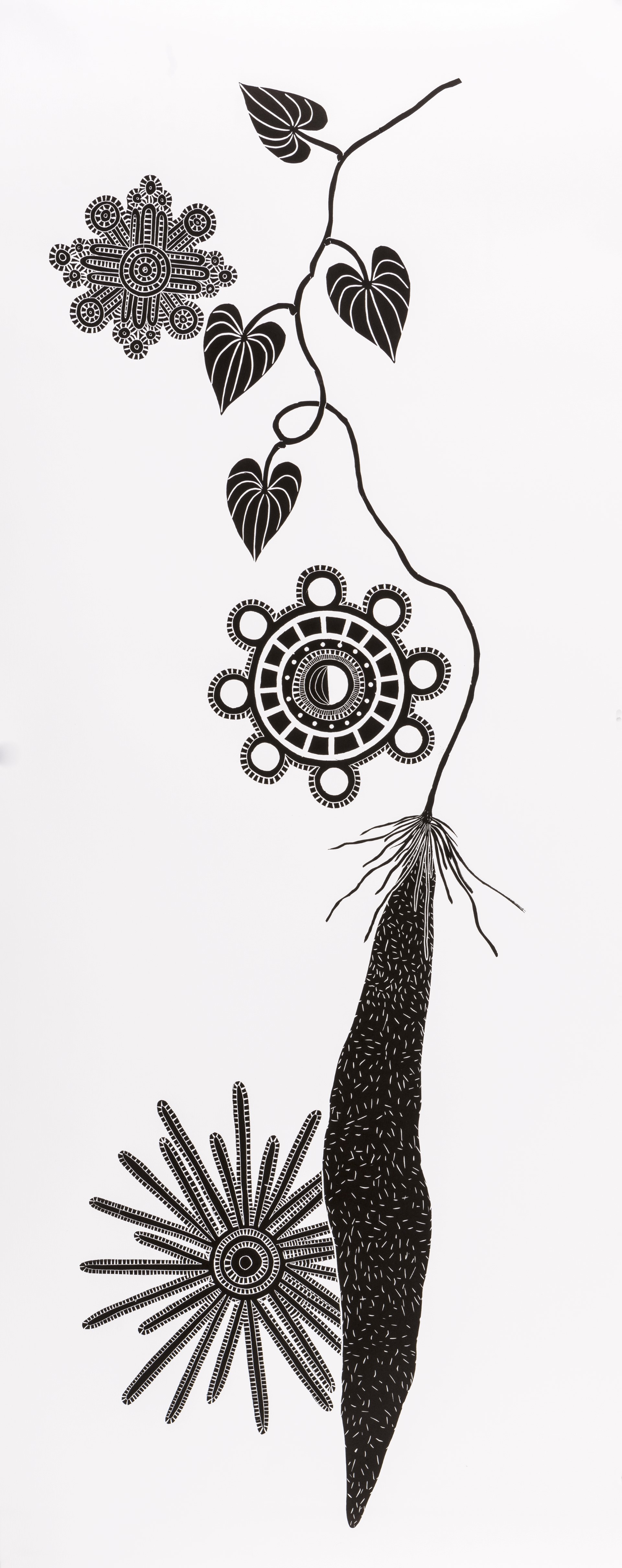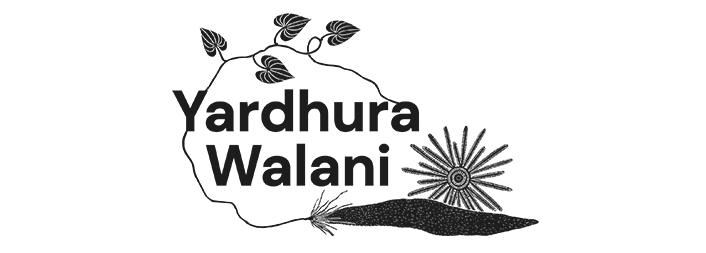Our name, Yardhura Walani, in Ngunnawal language means a strong, powerful and healthy energy and place.
Our Story
The art
The artwork is called Utku An Alarrakudhi. It is designed by Teho Ropeyarn. Ropeyarn is descended from the Angkamuthiand Yadhaykana clans from Injinoo on the mainland, Badu, Moa and Murray Island in the Torres Strait; Woppaburrapeople (Great Keppel Island) and Batchullapeople (Fraser Island). His practice is focussed on his father’s people’s heritage. Having lived in Injinoo most of his life, he focuses on his Aboriginal heritage to keep what is remaining, alive.
This artwork is the artist’s interpretation recreating chapters of a story told to him by his cultural teacher Late. Gordon Pablo. The story is the property of Teho’s uncle. Utku (Emu) and Alarrakudhi (Brolga) image begins with the yam and yam vine, sun, moon, and star. The yam vine carries the story and flows through each individual piece highlighting each event that took place.
The story features two families, the mother emu and her crazy wild, bad children and mother brolga and her children were good children that listened. Every morning the two mothers would grab their dilly bags, and everyone would go looking around for food in the bush, especially yam, and bring their dilly bags back to the camp, make fire, and cook and eat.
Watch Teho describe the inspiration behind his artwork and the process of bringing this story to life in the video below.

Governance
Upholding Aboriginal and Torres Strait Islander governance and ways of knowing, being and doing is a key objective of our Centre, informing our research approach. Our team regularly engages with our reference group, Thiitu Tharrmay (Ngiyampaa language, translates as ‘to share/exchange knowledge’.)
Thiitu Tharrmay members are Aboriginal and Torres Strait Islander peoples who are consumers or providers of healthcare, with knowledge and/or experience with research and health policy. Their roles, as members include:
- Serving as a source of expertise and advice on Aboriginal and Torres Strait Islander wellbeing;
- Providing advice on the appropriate conduct of research including ensuring that the research, dissemination and policy agenda reflects Aboriginal and Torres Strait Islander community priorities and values;
- Providing links to other relevant research, policy and practice initiatives;
- Assisting with developing relevant research questions;
- Providing context for and supporting appropriate interpretation of results;
- Facilitating the dissemination and translation of research findings;
- Contributing to publications (including being listed as an author); and,
- Reviewing results before publication.
Thiitu Tharrmay meets quarterly and presentation is by application to the Secretariat for Centre-based projects.
Our research data is collected, stored and managed according to Maiam nayri Wingara Indigenous Data Sovereignty Principles. The data is governed by a 12-member panel who asses the data use according to the Maiam nayri Wingara Indigenous Data Sovereignty Principles (Maiam nayri Wingara Indigenous Data Sovereignty Collective & Australian Indigenous Governance Institute, 2018).

